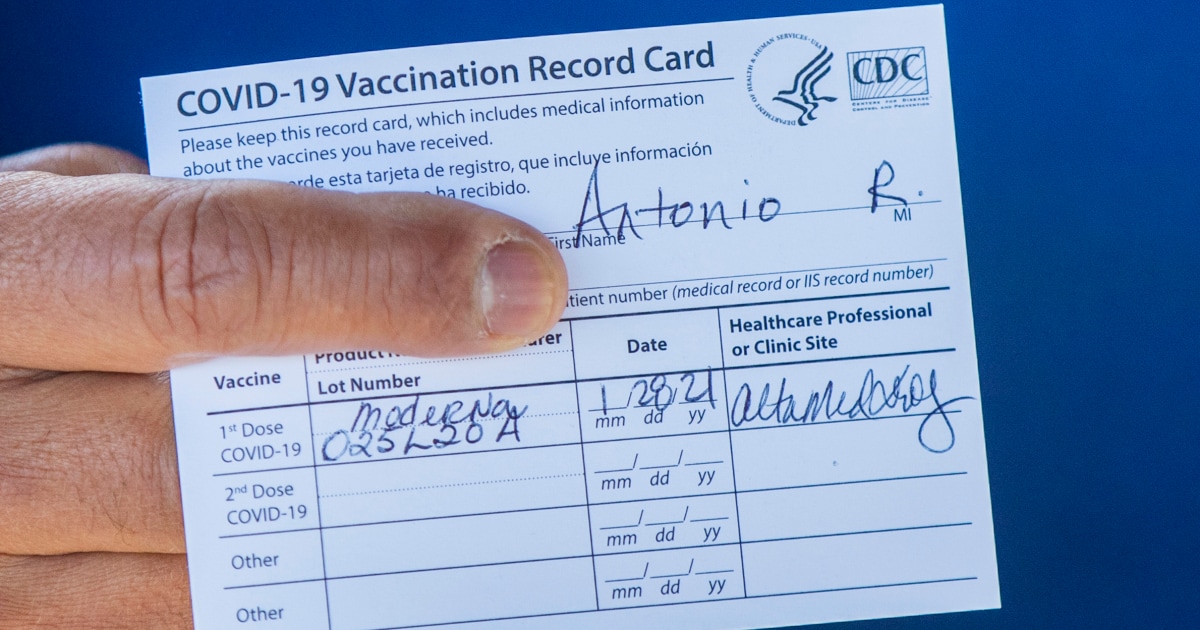
It’s the end of an era for a once-critical pandemic document: The ubiquitous white COVID-19 vaccination cards are being phased out.
Now that COVID-19 vaccines are not being distributed by the federal government, the U.S. Centers for Disease Control and Prevention has stopped printing new cards.
The federal government shipped more than 980 million cards between late 2020, when the first vaccines came out, through May 10, according to the latest available data from the CDC.
Federal and local health officials don’t expect the discontinuation of the cards to be a particularly big change, since the days of keeping them tucked in purses and wallets to ensure entry into festivals, bars and restaurants are largely over. If you’ve held on to your card, it’s still valid as proof of vaccination. Otherwise, people who need their COVID-19 immunization records will need to request them just like any other vaccine.
In many cases, the clinic, pharmacy or health department that provided the shot can provide those records. Every state and some cities have an immunization registry, though rules vary on when records are included and options for obtaining copies of your records. Records from the mass vaccination sites held early in the pandemic also should be available in those registries, depending on state laws. There is no national registry for immunization records.
For example, Texas requires patients’ written consent to be included in the registry, San Antonio Metropolitan Health District spokesman David Andres Alegria said. Other places, including Wyoming and Philadelphia’s city-specific record system, require vaccine providers to log all vaccinations.
Many states offer digital vaccination records for individuals either online or through an app. Users can save a certificate or a QR code that proves they are vaccinated. And some websites will even track and alert patients when they’re due for another one.
“One of the positives (during the pandemic) was having increased autonomy on your patient record, especially the immunization record,” said Jeff Chorath, who manages the immunization information system in Washington state. Washington offers two digital options for obtaining vaccination records — a comprehensive list of all of a person’s vaccinations noted in the state database and one specific to COVID-19 vaccines.
Other states don’t have the same options, so it might take longer to get your records. There could also be gaps in state databases; for example, if you were vaccinated by a federal health provider, those records may be tracked in a separate system.
As for your old card — if you still have it — maybe don’t mail it off to the Smithsonian quite yet. You should save it like any other health record, Wyoming Department of Health nurse consultant Heidi Gurov said.
“It’s always good to keep those in a safe spot,” she said.
Four million people in the U.S. have received the latest COVID-19 vaccine since it was approved last month, CDC director Dr. Mandy Cohen said Wednesday, and a total of 10 million doses have been shipped to providers.
Source: | This article originally belongs to Nbcnews.com










